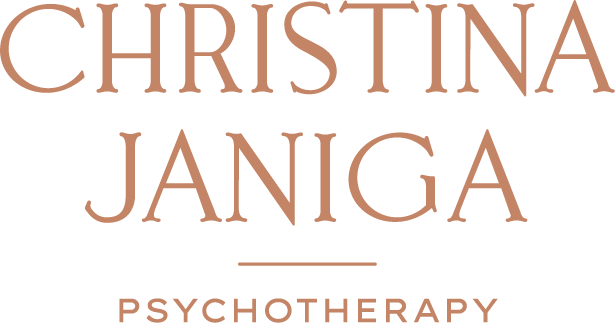Christina Janiga Psychotherapy - Blog
This blog is not a substitute for therapy, but provides evidence-based education for the purposes of self-help and information
Breaking the Stigma: Group Therapy for Trauma.
Learn how group therapy, like EMDR, can offer a sense of community and support while honouring your need for privacy.
Trauma is a deeply personal experience that can leave lasting scars on both the mind and body. Yet, seeking help for trauma can often be hindered by the stigma surrounding mental health. Many individuals may feel isolated, ashamed, or fearful of judgment, making it difficult to reach out for support. However, there is a powerful tool that challenges this stigma and offers a path to healing: Group Therapy – or more specifically, EMDR Group Therapy.
Understanding Group Therapy

Group therapy provides a unique environment where individuals with similar experiences can come together to share, learn, and heal. In the context of trauma, group therapy offers a sense of community and understanding that can be profoundly comforting and validating. It creates a safe space where individuals can express themselves without fear of judgment, knowing that they are surrounded by others who empathize and support them.
Breaking the Isolation

One of the most significant challenges of trauma is the sense of isolation it can create. Many survivors feel alone in their pain, believing that others couldn’t possibly understand what they’ve been through. Group therapy shatters this isolation by bringing individuals together who share common experiences. In these groups, participants can find validation, connection, and a sense of belonging that is crucial to the healing process.
Honouring Privacy

Privacy concerns are often a significant barrier to seeking therapy, especially for those who have experienced trauma. Fear of judgment, breaches of confidentiality, or simply feeling exposed can deter individuals from reaching out for help. Group therapy, however, can address these concerns by providing a supportive and confidential environment. Within the group, strict guidelines ensure that what is shared is based on a participant’s choice to disclose experiences and traumatic content remains private, only for the participant to reprocess, fostering a sense of safety and trust among participants.
The Power of EMDR

Eye Movement Desensitization and Reprocessing (EMDR), a highly effective therapeutic approach for trauma recovery, challenges the notion that emotional healing always requires a lengthy process. Just as the body naturally heals from physical wounds, EMDR therapy suggests that our minds can similarly recover from emotional trauma. However, sometimes traumatic experiences can impede this natural healing process, causing significant distress. EMDR works to remove these obstacles, facilitating smoother emotional healing.
Supported by extensive research, including over 30 controlled outcome studies, EMDR has demonstrated remarkable effectiveness. In numerous cases, individuals no longer meet the criteria for post-traumatic stress disorder (PTSD) after just a few sessions. For example, up to 90% of single-trauma victims have experienced relief after only three 90-minute sessions.
To enhance accessibility, Group EMDR Therapy can be particularly beneficial. In this setting, guided by an EMDR Therapist and other supportive psychotherapists, individuals can process their traumatic experiences privately, while receiving positive encouragement from others. The collective journey of healing in a group setting enriches the efficacy of EMDR, offering additional insights, perspectives, and emotional support throughout the process.
Benefits of EMDR Group Therapy for Trauma
Shared Understanding: Participants in group EMDR therapy share a common understanding of trauma, creating a supportive atmosphere where experiences are validated and understood.
Increased Resilience: Group members learn from each other’s coping strategies and resilience, inspiring hope and motivation for their own recovery journey.
Reduced Feelings of Shame: Knowing that others have similar experiences can reduce feelings of shame and self-blame, allowing individuals to explore their trauma with greater compassion and self-acceptance.
Enhanced Healing: The collective energy of the group amplifies the healing process, leading to deeper insights, emotional breakthroughs, and lasting transformation.
Group therapy, particularly when combined with approaches like EMDR, offers a powerful antidote to the stigma surrounding trauma and mental health. By providing a sense of community, support, and confidentiality, group therapy honours the individual’s need for privacy while offering a pathway to healing that is both effective and empowering. If you’ve experienced trauma, remember that you are not alone, and there is hope and healing to be found in the supportive embrace of a group therapy setting.
Learn More about EMDR Group Therapy
Secure Services
Christina Janiga and associated employees of Christina Janiga Psychotherapy offer virtual psychotherapy and couselling sessions through secure, Canada-based software called JaneVideo. JaneVideo is secure and encrypted online video platforms that meet all of Canada’s privacy requirements and laws.
For more information, please see Jane’s privacy policies.
